MusiQ
Chopin, Vladimir Ashkenazy - The Piano Works Klavierwerke Oeuvres Pour Piano
Album: The Piano Works Klavierwerke Oeuvres Pour Piano
Rating: 3.67
Table of Contents
Download
Filename: chopin-vladimir-ashkenazy-the-piano-works-klavierwerke.rar- MP3 size: 1029.3 mb
- FLAC size: 12461.1 mb
Tracks
| Track | Duration | Preview |
|---|---|---|
| XI: E Flat Major | 2:26 | |
| IV: B Flat Minor | 4:31 | |
| I: G Sharp Minor | 1:25 | |
| XI: B Major | 0:42 | |
| III: F Sharp Minor | 3:13 | |
| I: B Flat Minor | 5:47 | |
| I: D Flat Major | 1:50 | |
| Waltz In E Flat Major ('Sostenuto,' 1840) | 2:18 | |
| 2 Bourrées | (1:08) | |
| I: A Minor | 4:29 | |
| II: D Major | 2:03 | |
| XIII: F Sharp Minor | 3:23 | |
| Prelude In C Sharp Minor, Op.45 | 4:39 | |
| XXI: B Flat Major | 1:46 | |
| XI: A Minor 'Winter Wind' | 3:46 | |
| 3 Mazurkas, Op.63 | ||
| 2 Waltzes, Op.69 | ||
| Waltz In E Major | 2:10 | |
| 3 Mazurkas, Op.56 | ||
| IX: F Minor | 2:20 | |
| Nocturne In C Minor | 3:05 | |
| X: B Minor | 4:44 | |
| Mazurka In D Major | 1:14 | |
| XIV: E Flat Minor | 0:37 | |
| Ballade No.2 In F Major, Op.38 | 7:38 | |
| VI: B Minor | 2:03 | |
| Rondo "À La Mazur" In F Major, Op.5 | 7:29 | |
| Waltz In A Flat Major, Op.42 | 3:23 | |
| 5 Mazurkas, Op.7 | ||
| 2 Nocturnes, Op.27 | ||
| II: E Flat Minor | 7:28 | |
| I: C Sharp Minor | 5:27 | |
| Waltz In E Flat Major ("Sostenuto", 1840) | 2:18 | |
| 4 Mazurkas, Op.17 | ||
| Mazurka In A Minor ("À Émile Gaillard", 1840) | 3:09 | |
| II: B Flat Major | 7:13 | |
| XIX: E Flat Major | 1:25 | |
| 12 Études, Op.25 | ||
| VIII: F Major | 2:19 | |
| XVI: B Flat Minor | 1:09 | |
| Rondo 'À La Mazur' In F Major, Op.5 | 7:28 | |
| III: F Major | 1:50 | |
| II: G Minor | 1:55 | |
| V: D Major | 0:34 | |
| Rondo In C Minor, Op.1 | 7:48 | |
| Scherzo No.3 In C Sharp Minor, Op.39 | 6:39 | |
| Polonaise In G Minor | 2:39 | |
| IV: A Minor | 1:33 | |
| V: C Major | 0:45 | |
| XVIII: F Minor | 1:04 | |
| Variations Brillantes In B Flat Major, Op.12 | 8:09 | |
| XX: C Minor | 1:37 | |
| X: A Flat Major | 2:15 | |
| II: Scherzo: Molto Vivace | 2:41 | |
| 2 Polonaises, Op.26 | ||
| II: E Flat Major | 3:59 | |
| Polonaise In A Flat Major, Op.53 | 6:18 | |
| 12 Études, Op.10 | ||
| IV: B Minor | 4:34 | |
| V: G Flat Major "Black Key" | 1:42 | |
| Rondo In E Flat Major, Op.16 | 9:49 | |
| II: C Minor | 6:49 | |
| IV: A Flat Major | 1:06 | |
| Fugue In A Minor (1841-42) | 2:09 | |
| XV: D Flat Major 'Raindrop' | 5:16 | |
| Variations In D Major For Piano Duet | 7:36 | |
| III: C Minor | 5:55 | |
| Piano Sonata No.1 In C Minor, Op.4 | ||
| Polonaise In A Flat Major | 4:17 | |
| X: C Sharp Minor | 0:30 | |
| Polonaise In B Flat Minor | 4:01 | |
| 3 Waltzes, Op.70 | ||
| IV: Finale: Presto, Non Tanto | 5:15 | |
| Nocturne In E Minor, Op.72 No.1 | 4:15 | |
| IV: C Sharp Minor | 2:02 | |
| Variations In A Major ('Souvenir De Paganini', 1829) | 3:36 | |
| III: C Major | 1:28 | |
| Variations In A Major ("Souvenir De Paganini", 1829) | 3:36 | |
| XII: C Minor 'Revolutionary' | 2:42 | |
| Waltz In E Flat Major, Op.18 | 4:50 | |
| VII: C Sharp Minor | 5:42 | |
| I: A Flat Major | 2:54 | |
| II: D Flat Major | 5:47 | |
| I: F Sharp Minor | 3:14 | |
| Mazurka In G Minor | 1:43 | |
| 4 Mazurkas, Op.6 | ||
| Berceuse In D Flat Major, Op.57 | 4:59 | |
| III: G Minor | 3:45 | |
| IV: Finale: Presto | 1:29 | |
| I: C Major | 0:48 | |
| IX: G Flat Major | 0:56 | |
| I: F Major | 4:31 | |
| Mazurka In C Major | 2:20 | |
| Ballade No.3 In A Flat Major, Op.47 | 7:29 | |
| Impromptu In G Flat Major, Op.51 | 4:32 | |
| I: Grave — Doppio Movimento | 7:37 | |
| 3 Nouvelles Études | ||
| 3 Nocturnes, Op.15 | ||
| 2 Nocturnes, Op.55 | ||
| Scherzo No.1 In B Minor, Op.20 | 9:51 | |
| VIII: D Flat Major | 1:07 | |
| 24 Preludes, Op.28 | ||
| Piano Sonata No.2 In B Flat Minor, Op.35 | ||
| XXII: G Minor | 0:48 | |
| I: A Major | 5:05 | |
| I: B Flat Major | 1:57 | |
| XI: A Minor "Winder Wind" | 3:49 | |
| 2 Nocturnes, Op.32 | ||
| II: F Sharp Minor | 7:30 | |
| Mazurka In F Minor, Op.68 No.4 (Revised Version) | 3:30 | |
| VIII: F Sharp Minor | 2:05 | |
| Mazurka In A Minor ('Notre Temps,' 1840) | 3:13 | |
| Largo In E Flat Major (?1837) | 1:58 | |
| Mazurka In A Flat Major | 1:16 | |
| Waltz In E Flat Major (1829/30) | 3:03 | |
| Marche Funèbre In C Minor, Op.72 No.2 | 5:25 | |
| III: Largo | 8:59 | |
| VI: E Flat Minor | 4:03 | |
| 3 Mazurkas, Op.59 | ||
| Albumblatt In E Major | 1:17 | |
| Variations Sur Un Air National Allemand | 7:35 | |
| III: Marche Funèbre | 8:57 | |
| Piano Sonata No.3 In B Minor, Op.58 | ||
| I: G Minor | 6:10 | |
| IV: E Flat Minor | 0:58 | |
| Variation In E Major (From 'Hexameron,' 1837) | 1:37 | |
| II: A Minor | 2:02 | |
| V: E Minor | 3:35 | |
| 3 Polonaises, Op.71 | ||
| 3 Nocturnes, Op.9 | ||
| II: E Minor | 1:57 | |
| I: Allegro Maestoso | 9:24 | |
| I: B Major | 5:05 | |
| Impromptu In F Sharp Major, Op.36 | 5:58 | |
| 4 Mazurkas, Op.67 | ||
| Fantaisie-Impromptu In C Sharp Minor, Op.66 | 4:54 | |
| III: E Major | 4:20 | |
| XV: D Flat Major "Raindrop" | 5:16 | |
| VI: G Sharp Minor | 2:05 | |
| XXIV: D Minor | 2:33 | |
| 4 Mazurkas, Op.68 | ||
| 2 Nocturnes, Op.62 | ||
| I: C Minor | 6:26 | |
| II: C Major | 2:03 | |
| VII: C Major | 1:27 | |
| 4 Mazurkas, Op.33 | ||
| Mazurka In A Minor ('À Émile Gaillard,' 1840) | 3:05 | |
| VII: A Major | 0:57 | |
| Galop Marquis | 0:44 | |
| XXIII: F Major | 1:08 | |
| Polonaise In G Sharp Minor | 6:22 | |
| 4 Mazurkas, Op.24 | ||
| Allegro De Concert In A Major, Op.46 | 11:35 | |
| Bolero In A Minor, Op.19 | 7:16 | |
| Waltz In A Minor (?1843) | 1:49 | |
| 4 Mazurkas, Op.30 | ||
| 3 Écossaises, Op.72 No.3 | (2:11) | |
| Ballade No.1 In G Minor, Op.23 | 9:47 | |
| Wiosna (From Op.74 No.2) | 0:58 | |
| III: A Flat Major | 2:19 | |
| II: G Major | 5:36 | |
| 4 Mazurkas, Op.41 | ||
| Tarantelle In A Flat Major, Op.43 | 3:05 | |
| I: D Minor | 5:23 | |
| Scherzo No.2 In B Flat Minor, Op.31 | 9:49 | |
| III: F Minor | 7:07 | |
| Polonaise In B Flat Major | 3:06 | |
| 2 Nocturnes, Op.48 | ||
| I: D Major | ||
| Cantabile In B Flat Major | 1:02 | |
| II: A Major | ||
| II: F Sharp Major | 3:45 | |
| Polonaise In F Sharp Minor, Op.44 | 10:25 | |
| 3 Waltzes, Op.34 | ||
| Prelude In A Flat Major | 0:41 | |
| 2 Polonaises, Op.40 | ||
| III: D Flat Major | 2:27 | |
| III: C Sharp Minor | 4:57 | |
| XII: C Minor | 2:47 | |
| Rondo In C Major, Op.73 | 8:36 | |
| I: G Major | 1:49 | |
| XII: G Sharp Minor | 1:12 | |
| IV: F Minor | 2:17 | |
| II: F Minor | 1:51 | |
| Waltz In A Flat Major | 2:10 | |
| Fantaisie In F Minor, Op.49 | 13:58 | |
| II: C Sharp Minor | 3:25 | |
| IX: E Major | 1:20 | |
| II: B Minor | 3:40 | |
| III: Larghetto | 4:03 | |
| II: Scherzo | 6:39 | |
| Mazurka In B Flat Major (For Alexandra Wołowska, 1832) | 1:01 | |
| Mazurka In A Minor ("Notre Temps", 1840) | 3:16 | |
| Waltz In E Minor | 2:37 | |
| Nocturne In C Sharp Minor | 4:01 | |
| XVII: A Flat Major | 3:09 | |
| I: F Minor | 4:51 | |
| 3 Mazurkas, Op.50 | ||
| Polonaise In G Flat Major | 6:51 | |
| II: Minuetto — Trio | 4:26 | |
| 3 Waltzes, Op.64 | ||
| III: G Major | 1:00 | |
| II: A Flat Major | 5:42 | |
| Mazurka In B Flat Major | 1:09 | |
| Barcarolle In F Sharp Major, Op.60 | 8:49 | |
| Scherzo No.4 In E Minor, Op.54 | 10:10 | |
| I: G Flat Major | 2:05 | |
| Impromptu In A Flat Major, Op.29 | 3:59 | |
| Ballade No.4 In F Minor, Op.52 | 11:20 | |
| Variation In E Major (From "Hexameron", 1837) | 1:38 | |
| XII: C Minor "Revolutionary" | 2:51 | |
| 2 Nocturnes, Op.37 | ||
| IV: E Minor | 2:01 | |
| Polonaise-Fantaisie In A Flat Major, Op.61 | 14:02 | |
| Mazurka In D Major (?1820) | 1:02 | |
| V: G Flat Major 'Black Key' | 1:39 | |
| Contredanse In G Flat Major (?1827) | 1:38 | |
| III: B Major | 6:46 | |
| II: E Major | 5:55 |
Images






Catalog Numbers
- 5064040
- 443 738-2, 478 2282
Labels
- Decca
- London Records, Decca
Listen online
- online luisteren
- lytte på nettet
- ouvir online
- lyssna på nätet
- escuchar en línea
- kuunnella verkossa
- écouter en ligne
- ascolta in linea
- online anhören
Formats
- 13 × CD
- Compilation
- Club Edition
- Reissue
Companies
| Role | Company |
|---|---|
| Recorded At | All Saints Church Petersham |
| Copyright (c) | Decca Music Group Limited |
| Phonographic Copyright (p) | Decca Music Group Limited |
| Manufactured By | Musical Heritage Society |
| Distributed By | Musical Heritage Society |
| Licensed From | Universal Classics Group |
| Made By | EDC, Germany |
Credits
| Role | Credit |
|---|---|
| Art Direction | Lucy Gowans |
| Composed By | Frédéric Chopin |
| Cover | B. Franz |
| Engineer | Colin Moorfoot, James Lock , John Dunkerley, John Pellowe, Kenneth Wilkinson, Simon Eadon, Stanley Goodall, Tryggvi Tryggvason |
| Liner Notes | Jeremy Siepmann |
| Piano | Vladimir Ashkenazy |
| Producer | Andrew Cornall, Christopher Raeburn, James Walker , Richard Beswick |
| Booklet Editor | WLP Ltd. |
Notes
- ℗ 1975, 1977, 1978, 1980, 1981, 1982, 1983, 1984, 1985 The Decca Record Company Limited, London
- © 1995 The Decca Record Company Limited, London
- Printed in Germany
- Made in Germany
- Recorded in London, 1974-1984 at the following locations: All Saints' Church, Petersham; Kingsway Hall; London Opera Centre; Rosslyn Hill Unitarian Chapel; St. John's, Smith Square; St. George the Martyr; St Barnabus' Church
- 13 CDs, each with a plain paper clear-view front sleeve, all inside a hinged box; includes a 24-page booklet, notes in English and full track listing.
- Made in the EU
- Recorded in London 1974-1984
Barcodes
- Barcode: 7 1779-46404-2 7
- SPARS Code: DDD/ADD
- Barcode: 028944373820
About Chopin, Vladimir Ashkenazy
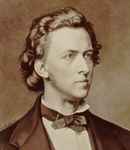
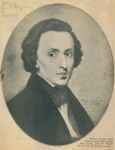
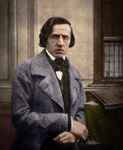

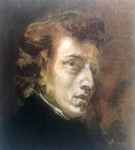
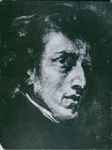
Born: 1810-03-01 (Duchy of Warsaw) at present Żelazowa Wola, Poland.
Died: 1849-10-17 (Paris, France).
Fryderyk Franciszek Chopin (1 March 1810 17 October 1849) was a Polish composer and virtuoso pianist of the Romantic era who wrote primarily for solo piano. He has maintained worldwide renown as a leading musician of his era, one whose "poetic genius was based on a professional technique that was without equal in his generation."
Chopin was born in the Duchy of Warsaw in a small town called Żelazowa Wola (eng. Steel Will), within months of his birth the Chopin family moved to Warsaw the capital of the Duchy, where Fryderyk grew up and learned to play; in 1815 the Duchy became the Kingdom of Poland. A child prodigy, he completed his musical education and composed his earlier works in Warsaw before leaving Poland at the age of 20, less than a month before the outbreak of the November 1830 Uprising. At the age of 21, he settled in Paris. Thereafterin the last 18 years of his lifehe gave only 30 public performances, preferring the more intimate atmosphere of the salon. He supported himself by selling his compositions and by giving piano lessons, for which he was in high demand. Chopin formed a friendship with Franz Liszt and was admired by many of his other musical contemporaries (including Robert Schumann). In 1835, when Chopin obtained French citizenship he became . After a failed engagement to Maria Wodzińska from 1836 to 1837, he maintained an often troubled relationship with the French writer Amantine Dupin (known by her pen name, George Sand). A brief and unhappy visit to Majorca with Sand in 183839 would prove one of his most productive periods of composition. In his final years, he was supported financially by his admirer Jane Stirling, who also arranged for him to visit Scotland in 1848. For most of his life, Chopin was in poor health. He died in Paris in 1849 at the age of 39, probably of pericarditis aggravated by tuberculosis.
All of Chopin's compositions include the piano. Most are for solo piano, though he also wrote two piano concertos, a few chamber pieces, and some 19 songs set to Polish lyrics. His piano writing was technically demanding and expanded the limits of the instrument: his own performances were noted for their nuance and sensitivity. Chopin invented the concept of the instrumental ballade. His major piano works also include mazurkas, waltzes, nocturnes, polonaises, études, impromptus, scherzos, preludes and sonatas, some published only posthumously. Among the influences on his style of composition were Polish folk music, the classical tradition of J.S. Bach, Mozart, and Schubert, and the atmosphere of the Paris salons of which he was a frequent guest. His innovations in style, harmony, and musical form, and his association of music with nationalism, were influential throughout and after the late Romantic period.
Chopin's music, his status as one of music's earliest superstars, his (indirect) association with political insurrection, his high-profile love-life, and his early death have made him a leading symbol of the Romantic era. His works remain popular, and he has been the subject of numerous films and biographies of varying historical fidelity.
Real Name
- Fryderyk Franciszek Chopin
Name Vars
- Cgoopin
- Chopin
- Chopin = ·çÑó
- Chopin F.
- Chopin Frederic
- Chopin Frederic F.
- Chopin Frédéric
- Chopin, F.
- Chopin, Fryderyk
- Chopin, Frédéric
- Chopina
- Chopìn
- Chopín
- Copin
- E. Šopenas
- F Chopin
- F F Chopin
- F, Chopin
- F. Chopin
- F. Chopen
- F. Chopin
- F. Chopin,
- F. Choppin
- F. Chopín
- F. F. Chopin
- F. Schopin
- F. Shopen
- F. Shopin
- F. Sopen
- F. Šopen
- F. Šopenas
- F. ·çÑó
- F.Chopan
- F.Chopin
- F.F. Chopin
- F.F.Chopin
- F.·çÑó
- FChopin
- FR. Chopin
- Federic Chopin
- Federico Chopin
- Fr. Chopin
- Fr. Copin
- Fr. chopin
- Fr. Šopenas
- Fr.Chopin
- Francois Frederic Chopin
- Franz Chopin
- François Frédéric Chopin
- François-Frédéric Chopin
- Frayderyk Chopin
- Freddy Chopin
- Frederic Chopin
- Frederic Choppin
- Frederic F. Chopin
- Frederic Francois Chopin
- Frederic François Chopin
- Frederich Chopin
- Frederich Chopin (R.I.P.)
- Frederick Chopin
- Frederick Chópin
- Frederico Chopin
- Frederik Chopin
- Frederik Šopen
- Frederin Chopin
- Frederique Chopin
- Frederyk Chopin
- Frederyk Franciszek Chopin
- Fredic Chopin
- Fredric Chopin
- Fredryk Chopin
- Fredédéric Chopin
- Fredéric Chopin
- Freyderyk Chopin
- Frideryk Chopin
- Friederic Chopin
- Friederyk Chopin
- Friedric Chopin
- Friedrich Chopin
- FryDeryk Chopin
- Fryderic Chopin
- Fryderick Choopin
- Fryderick Chopin
- Fryderik Chopin
- Fryderika Chopina
- Fryderyc Chopin
- Fryderyck Chopin
- Fryderyk CHopin
- Fryderyk Chopin
- Fryderyk F. Chopin
- Fryderyk F.Chopin
- Fryderyk Franciszek Chopin
- Fryderyk chopin
- Fryderyka Chopina
- Frydéric Chopin
- Frydérik Chopin
- Frydéryc Chopin
- Frydéryk Chopin
- Fryederyk Chopin
- Frèdèric Chopin
- Fréderic Chopin
- Frédèric Chopin
- Frédéeric Chopin
- Frédéric
- Frédéric Chopin
- Frédéric F. Chopin
- Frédéric Francais Chopin
- Frédéric Franciszek Chopin
- Frédéric Francois Chopin
- Frédéric François Chopin
- Frédéric Frànçois Chopin
- Frédéric-François Chopin
- Frédérich Chopin
- Frédérick Chopin
- Frédéryk Chopin
- Inspired by prelude In C Minor - F. Chopin
- Nipohc
- Plays Chopin
- Shopin
- Wagner
- chopin
- Šopen
- Σοπέν
- Ф. Шопен
- Ф. Шопен (1810-1849)
- Ф.Шопен
- Фредерик Шопен
- Фредерих Шопен
- Фредерік Шопен
- Фридерик Шопен
- Шопен
- Шопен Ф.
- Шопен Фредерик
- Шопенъ
- פרדריק שופן
- שופן
- شوپن
- ·çÑó
- ÕìÇêïû·çÑó
- խ¦
- Ǽ̽
